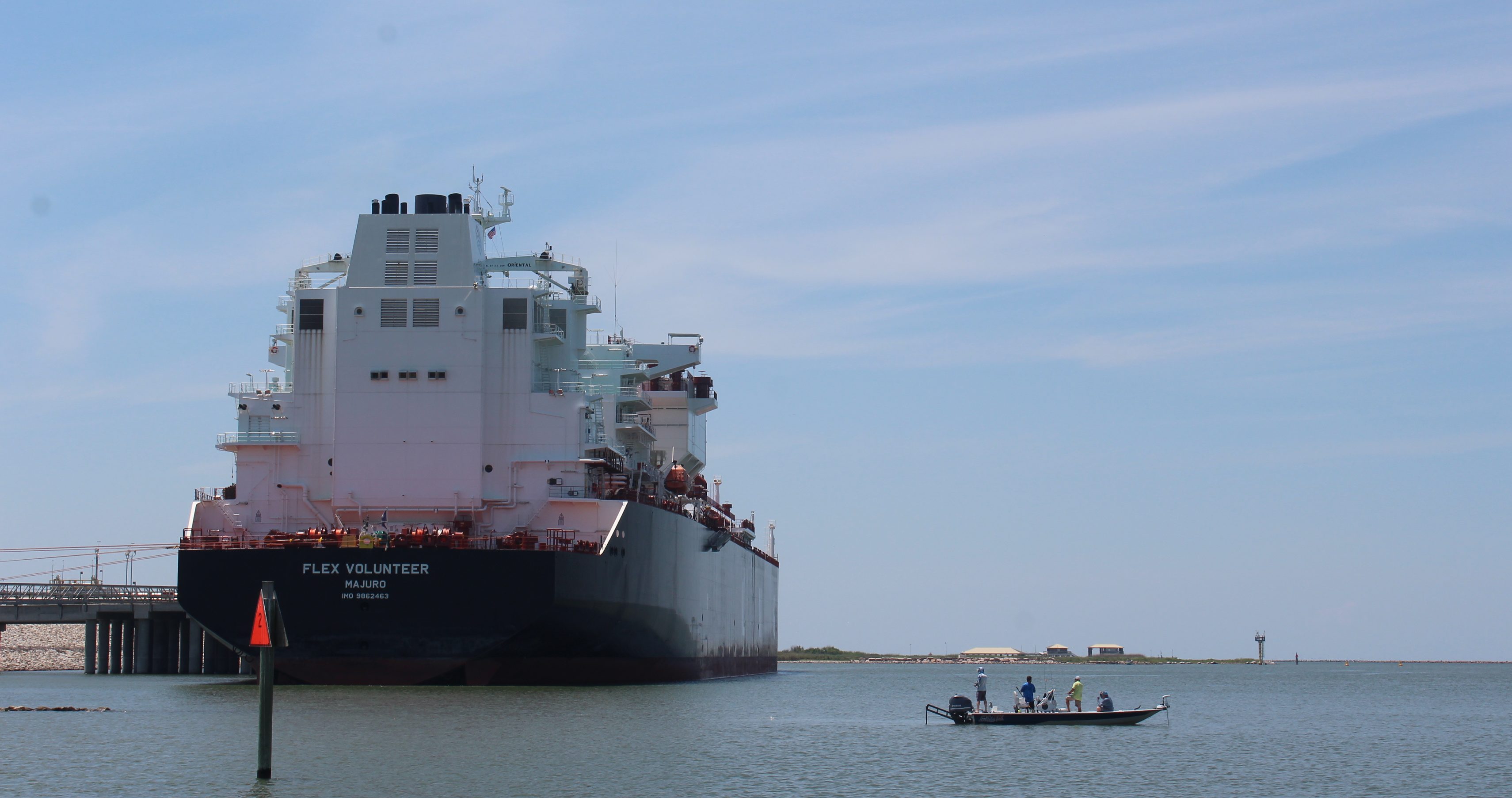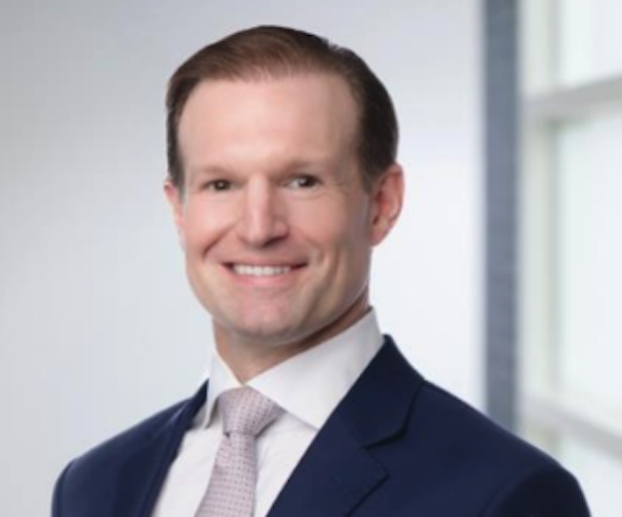Shrimpers: LNG industry destroying land, water around Cameron
Published 5:52 am Saturday, June 17, 2023





Adley “Leo” Dyson is a former shrimper who lived in Cameron for 72 years. He said the local commercial fishing industry in the parish that he loves is dying as the LNG industry damages the land and water around the area.
“We’re raping our communities and land to get gas and money for the company called Venture Global,” he said. “Global is the keyword.”
Venture Global Calcasieu Pass LNG is a liquified natural gas export facility located on the Calcasieu Ship Channel. This facility is one of three operational gas export terminals in Cameron Parish, alongside Sempra Cameron LNG and Cheniere Energy Partners Sabine Pass. As gas export terminals, all liquefied natural gas from the facilities is shipped across the globe — with the United States receiving none of the resources.
According to the Louisiana Bucket Brigade — an environmental and social justice group — the oil and gas industry plans to build 12 additional gas export terminals, “each of which could reach the size of a football stadium and consume vast amounts of land, including coastal wetlands and other sensitive areas.”
The installation of Calcasieu Pass LNG has already had environmental effects, Dyson said.
“So much wildlife was back here, that’s all gone,” he said.
As a prominent shrimper, Dyson said he has seen the consequences of comparable facilities in other areas, such as Sabine. After a gas export terminal was established there, the number of active shrimping boats was reduced from 50 to none. A similar situation occurred in Freeport, Texas, he said.
He said he believes this is strategic.
“All over the place, these big corporations, first thing they do is they get all the docks … it’s big corporations wanting to build condominiums on the waterfront and run the local fishermen out. So, this is a nationwide problem.”
Anne Rolfes, executive director of the Louisiana Bucket Brigade, has also been a witness to the community effects of LNG gas export terminals. She has worked in St. James Parish and said the two largest Black-majority districts is where industry development was focused.
“They closed the high school, they got rid of the post office, they shut down an evacuation route,” she explained.
She said she believes the trends are repeating themselves at Calcasieu Pass.
“Here, it is very clear that what they are doing is industrializing the lower Cameron Parish, and you can see the very same trends of withdrawing government services.”
She referenced the unreliable Cameron ferry, in addition to the loss of the library, Cameron Jetty Pier and the original Davis Road boat launch.
This former boat launch was located in an area absorbed by Calcasieu Pass LNG. Dyson said there was also a building with bathrooms and a pavilion built with public money and a pier that was taken away.
A public dock was provided by Venture Global, but Cameron resident Travis Dardar — an indigenous Louisiana fisherman and oysterman — said the provided launch is only a fraction of what used to exist. “We could launch three boats at the same time over there.”
He said the new dock can hardly handle one boat.
“Most commercial boats are as wide as this launch,” he said. “To take something that great, and give us back something so little, just to say that they’ve done something is proof that it wasn’t for you.”
Dardar is originally from Isle de Jean Charles, the historical homeland and burial ground of the Biloxi-Chitimacha-Choctaw indigenous peoples that has been reduced to a strip of land due to erosion.
Dardar, along with his wife Nicole, moved to Cameron for higher ground and commercial fishing opportunities.
“When I moved here it was beautiful. It reminded me of what the island where I’m from used to be.”
He recalled a body of water filled with shrimp.
“By 8:30, 9 in the morning we were already at the bank waiting to cash our check, our day was made, that early in the morning. Slowly and surely it went away. First they took the dredge away, then they took the docks away. Then the shrimping, the price went down, everything declined,” Dardar said.
Phillip “Rooster” Dyson, a Cameron-based fisherman and shrimper, said he believes the Cameron shrimping industry has a life expectancy of no more than two years.
“If something doesn’t change … I mean, it’s all about the plants and nothing about the shrimping industry.”
He said the presence of Calcasieu Pass LNG in the water limits the ability to fish.
“When the shrimp show up, they’re moving those ships and you can’t be anywhere in the way. They want us to be two miles from these ships when they come into the ship channel. Well, I’d have to leave my dock to be two miles away from them.”
“If you’re shrimping and one of those boats is coming through, it doesn’t matte. Pick up your nets and move,” said Nicole Dardar of the large tankers used to transport LNG.
While not a shrimper herself, she said she has felt the effects from the sidelines. Her family (they have two children) live less than a mile away from Calcasieu Pass. She believes the largest consequences is the decline of their well-being, both mental and physical.
“Our health is just not what it used to be.” She said she recently suffered a heart attack and now has to wear a heart monitor. She is 43.
“It destroyed our lives,” said Travis. “The kids are miserable … they hate it here.”
They attribute this to the general decline in their quality of life, citing simple joys that are no longer present.
“We used to be able to hear the beach, the waves crashing on the beach at night. Now, all you hear is a roar … no one should have to live next to this,” said Nicole.
Adley claims to have experienced negative effects to his health, as well. He worked at the plant for about a year and a half with a third-party as a mechanic for diesel engines before being let go six months ago. He developed COPD and has undergone two heart operations. “Before that I had never been sick in my life.”
According to Nicole Dardar, the proposed expansion would be built only hundreds of feet away from their house. Much like their neighbors, they have been offered buyouts from Venture Global. Negotiations are ongoing, and they were not comfortable with disclosing previous offers. “It’s not enough for us to move,” she said.
Adley has firsthand experience with moving out of Cameron; he was displaced after the landfall of Hurricane Laura. “
They need to keep in mind that these people are having to start over, and that’s not cheap.”
Rolfes said it’s important to remember the damages from natural ecological events like hurricanes, erosion and world-wide climate change have contributed to the region’s decline; however, she believes further industrial expansion will be the nail in the coffin.
“Cameron Parish is so important, it is a lifeblood, and it’s the LNG facilities that are the last straw. If those things get built, it’s over here,” she said. “What could happen if all that energy, and the money, were redirected in support of the fishing industry?”
Adley said in the end, the loss of a culture would be the greatest thing to mourn.
“The house is nothing. It’s the family and your town and your kids’ friends and how do you put a price on that, ya know?”
•
Editor’s Note: The American Press has reached out to Venture Global LNG for a response to this story.










